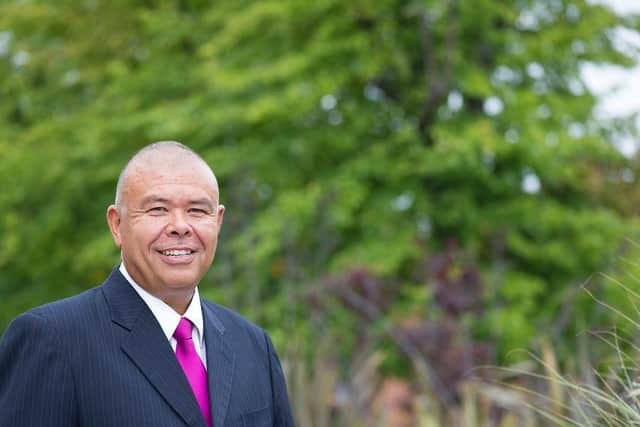'No need to avoid Meadowhall or Leeds United games over coronavirus - for now'


When new viruses emerge in humans, we must treat them with the utmost respect and learn as much as we can about them.
Since the first cases of COVID-19 were reported in China’s Hubei province in early December 2019, leading UK scientists and clinicians have been working with international partners to closely monitor this outbreak.
Advertisement
Hide AdAdvertisement
Hide AdThe new virus itself comes from a family known as coronavirus and previous strains have caused a range of illnesses in humans, from the common cold to SARS.


We must always follow the science. A vaccine will take time to develop safely. We are still learning about how COVID-19 affects individuals, and as our understanding of this virus develops, so too does the way in which we can manage cases.
The virus causes sore throat, fever, cough and muscle aches, rather like flu and lasts seven to 10 days. A small minority of sufferers can develop breathing difficulties and pneumonia. The illness is more dangerous for people with weakened immune systems, older people, and those with long term conditions like heart disease, lung disease and diabetes.
Researchers, public health experts, scientists, and the NHS are working very hard on this outbreak. I receive regular advice from the best experts in the country, and already, we have sequenced the genome. Our testing capability is excellent, and we have a growing understanding of the virus.
Advertisement
Hide AdAdvertisement
Hide AdLast week, the government published a coronavirus action plan. We have always said it is likely that we will see more cases, and we are working hard to handle this increase through our four phased approach – contain, delay, mitigate, and research. This approach has been designed by world leading experts and has resulted in a detailed but accessible plan which sets out the options open to government in each phase of an outbreak.


This lists the options government could consider in a worst case scenario; these should not be read as a list of the steps the government will definitely take. While much has been written about whether ‘social distancing’ will be necessary, my advice on this currently remains unchanged. We are not telling people to avoid Meadowhall, for Leeds United or Bradford Bulls to play behind closed doors – nor should people cancel their travel plans from York Station.
Quite rightly, the people of Yorkshire will want to know what they should be doing to keep themselves and their families safe.
Our advice couldn’t be simpler to follow: washing your hands more often is something all of us can do to significantly reduce the risk of the disease spreading. Simple steps taken by each individual will significantly reduce the threat not just across Yorkshire, but the entire UK.
Advertisement
Hide AdAdvertisement
Hide AdThis advice is at the heart of a new public awareness campaign which the Health Secretary has launched. Washing your hands more often - when you come in from home or work, after you blow your nose, cough or sneeze, and before you eat or handle food can make a huge difference. This should be for 20 seconds, using soap and water or hand sanitiser. You should also cough or sneeze into tissues before binning them, so your hands are kept clean, then wash your hands. If you don’t have a tissue, cough or sneeze into the crook of your elbow.
You’ll be seeing plenty more of this kind of advice across all media in the coming weeks. It will change as the epidemic progresses and that is normal, not a sign that we are getting it wrong.
I also want to pay tribute to our NHS, Public Health England and Local Authority Public Health teams up and down the country which are working tirelessly to support everyone in need of advice, testing or treatment. The UK is a world leader in preparing for and managing disease outbreaks and our approach will always be led by medical experts.
But we have to be realistic – if the virus increases, we expect the UK to be impacted and pressure will be placed on the NHS. That’s why we are calling on every one of you to play your part and follow the campaign’s advice to reduce the spread of the virus.
Advertisement
Hide AdAdvertisement
Hide AdIt is important that everyone follows clinical advice by calling 111. Do not rush to A&E if you develop symptoms.
Misinformation is our greatest enemy as we work to contain the virus – the action plan and public health campaign is intended to counter misinformation online and cement our official advice. There is reliable advice on what to do to limit your disease risk, and what to do if you think you have the disease on the Department of Health and Public Health England’s websites.
I want to encourage everyone to follow the advice and keep themselves and those around them disease-free.